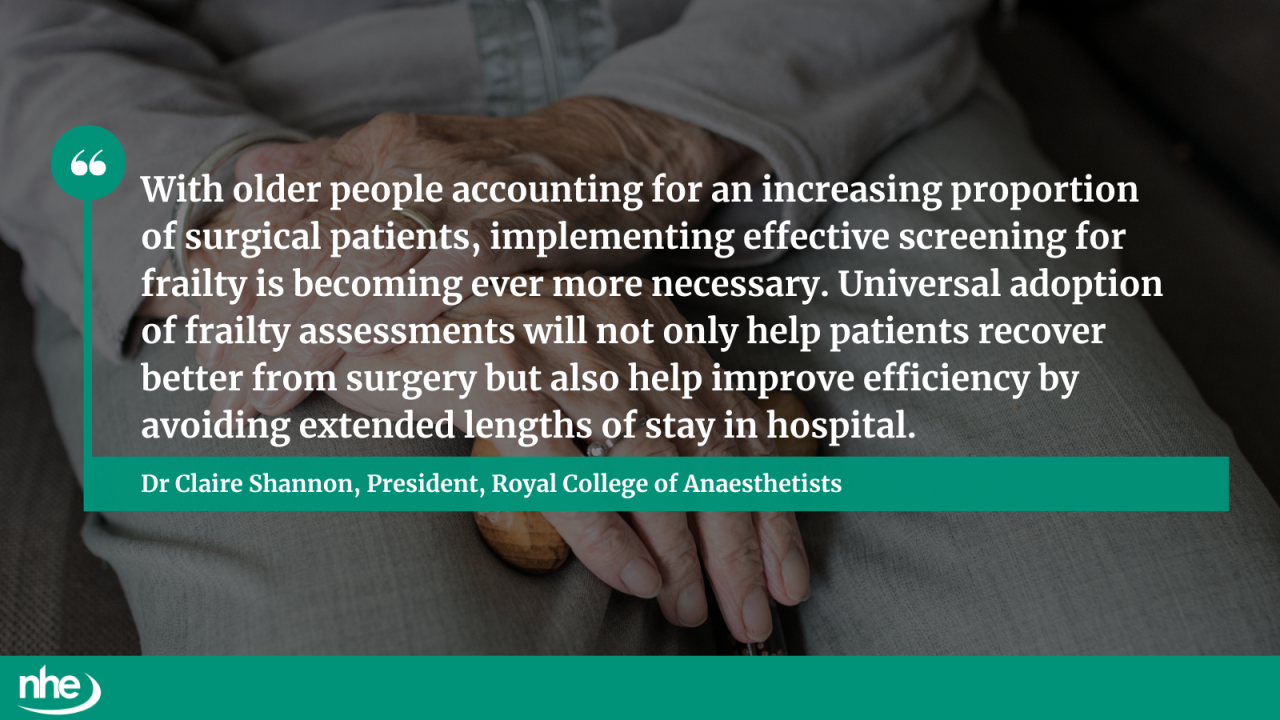A landmark study by the Royal College of Anaesthetists and the University of Nottingham has revealed that 71% of UK hospitals are not routinely screening surgical patients aged 60 and over for frailty, despite overwhelming evidence that frailty significantly increases the risk of post-operative complications, prolonged hospital stays, and even death.
The findings, published in the British Journal of Anaesthesia, come from the third Sprint National Anaesthesia Project (SNAP3)—the most comprehensive study of its kind in the UK. The research analysed data from 7,134 patients across 263 NHS hospitals over five days in March 2022.
Frailty is a condition that affects nearly one in five (19.6%) surgical patients over 60. It often goes undiagnosed, yet it can lead to:
- 3x higher risk of surgical complications
- 4x higher risk of post-operative delirium
- 3x higher risk of death within a year of surgery
- Hospital stays extended by up to six days for severely frail patients
Despite these risks, the study found that routine frailty screening is not standard practice in most NHS hospitals.
Researchers are urging that all patients aged 60+ be assessed for frailty before surgery using the Clinical Frailty Scale (CFS)—a simple tool that helps identify patients who may benefit from tailored care, including input from geriatricians.
President of the Royal College of Anaesthetists, Dr Claire Shannon, said:
"This research provides evidence that patients living with frailty are more likely to experience complications from surgery such as longer hospital stays and delirium. There is huge potential to improve patient outcomes by assessing all those over 60 for frailty as standard practice so that their care can be managed appropriately, with involvement from a geriatrician.
“With older people accounting for an increasing proportion of surgical patients, implementing effective screening for frailty is becoming ever more necessary. Universal adoption of frailty assessments will not only help patients recover better from surgery but also help improve efficiency by avoiding extended lengths of stay in hospital.”

The study highlights the need for a national policy shift to make frailty screening a routine part of pre-operative assessment. Early identification enables clinicians to:
- Personalise treatment plans
- Reduce surgical risks
- Improve recovery outcomes
- Support patients in maintaining independence
With the NHS under increasing pressure, integrating frailty screening could be a cost-effective strategy to improve patient safety and reduce hospital readmissions.
Image credit: iStock



















